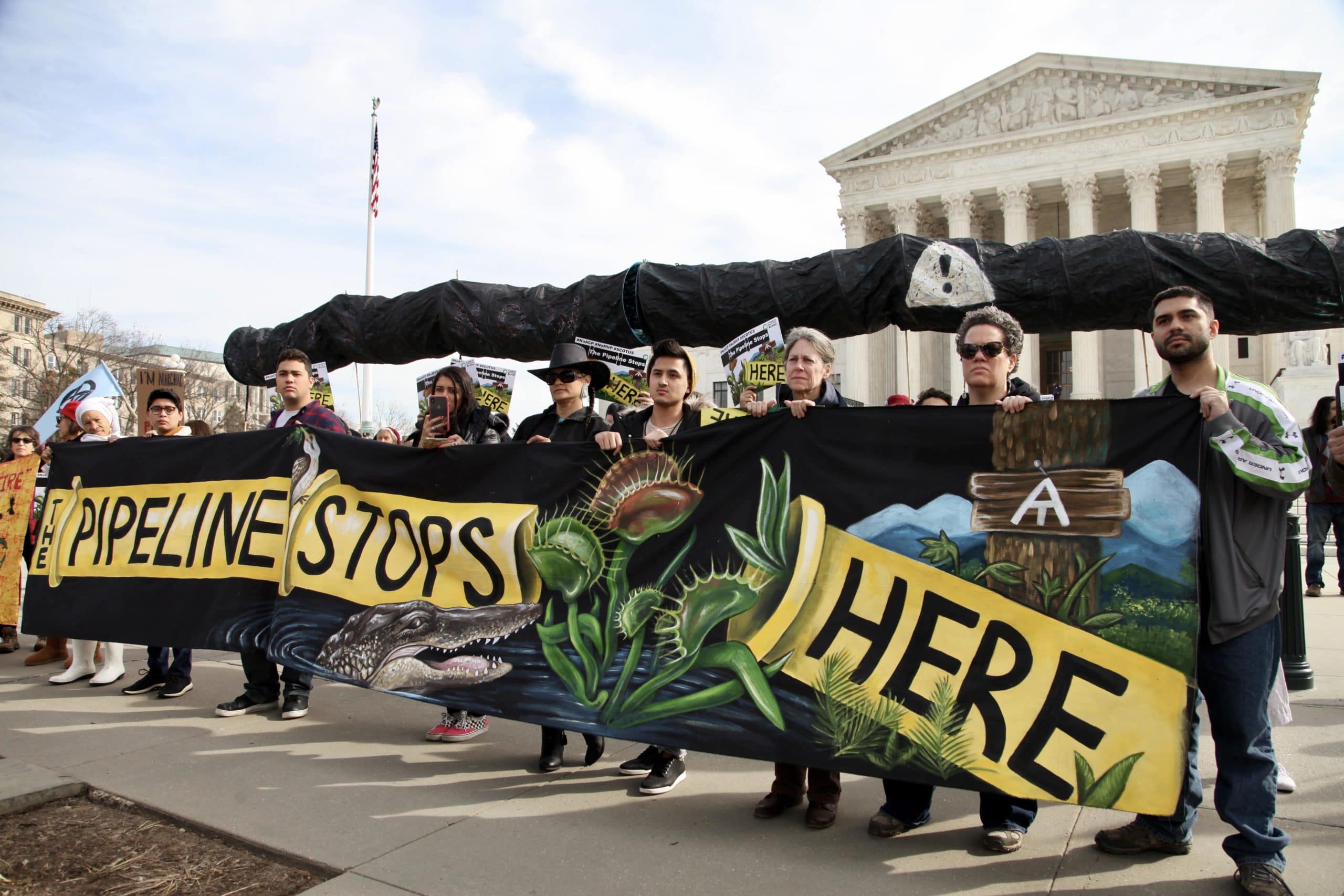
Victory Stories
Canceling the Atlantic Coast Pipeline
If built, the Atlantic Coast Pipeline would have carried fracked gas along a 600-mile route from West Virginia through Virginia, North Carolina and ultimately South Carolina. It would have generated 67 million metric tons of climate pollution a year — equal to 20 coal plants. It would have run through the Appalachian Trail, required 38 miles of mountaintop removal, and damaged farmland, forest, wildlife and habitats. And it would have disproportionately harmed low wealth, African American and Indigenous communities.
But, thanks to the power of grassroots activism, the Atlantic Coast Pipeline will not be built.
This fossil fuel pipeline owned by Dominion Energy and Duke Energy was initially announced in 2014 — and, ever since, it faced some of the stiffest community and environmental opposition in the country. The project was over two years behind schedule and massively over budget, leaving Dominion and Duke Energy shareholders on the hook for $30 billion in stranded costs. Friends of the Earth worked with like-minded groups and a former energy executive to call on the energy companies to abandon this project and stop hemorrhaging money. Simply put, the Atlantic Coast Pipeline was a risky and unnecessary investment that benefitted special interests and massively harmed communities, environment and shareholders.
Atlantic Coast Pipeline was based on greed — not need. It would have locked states into 30 years of fracked gas use, further delaying the transition to renewables. The pipeline was a blatant example of environmental injustice. Roughly 30,000 Native Americans live within the proposed pipeline route. The pipeline would have also run through the Lumbee river — a water source that the Lumbee Tribe of Robeson County, North Carolina rely upon. On top of poisoning the water of Indigenous peoples, Dominion and Duke Energy also planned on building a methane gas compressor station in Union Hill, Virginia — a historic African-American community. Living near pipelines and infrastructure like compressor stations has been documented to cause health complications, including respiratory, skin, neurological and psychological problems. The station was, aptly, referred to as “a vivid example of environmental racism.”
We need to be fighting climate injustice, not worsening it — so communities and Friends of the Earth activists showed up.
Collectively, more than 156,000 Friends of the Earth activists spoke out to Congress, North Carolina elected officials and financial institutions, calling for this destructive project to be canceled. Local communities and members of Lumbee Nation marched in North Carolina to stop the Atlantic Coast Pipeline. Friends of the Earth staff and activists joined those communities in taking over the streets in front of the Supreme Court to demand they stop the pipeline from running through the Appalachian Trail. Activists attended shareholder meetings and made sure North Carolina’s Governor Roy Cooper heard their voices.
Bending to pressure, Dominion and Duke Energy announced cancelation of the Atlantic Coast Pipeline! This project ended because of the activists taking to the streets and making it clear that we will not stand by while fossil fuel projects poison the bodies, land, air and water of Indigenous, Black and Brown communities.
This victory shows that when we fight the fossil fuel industry together, we win.
More Victory Posts
Ways to Support Our Work

Read Latest News
Stay informed and inspired. Read our latest press releases to see how we’re making a difference for the planet.

See Our Impact
See the real wins your support made possible. Read about the campaign wins we’ve fought for and won together.

Donate Today
Help power change. It takes support from environmental champions like you to build a more healthy and just world.

